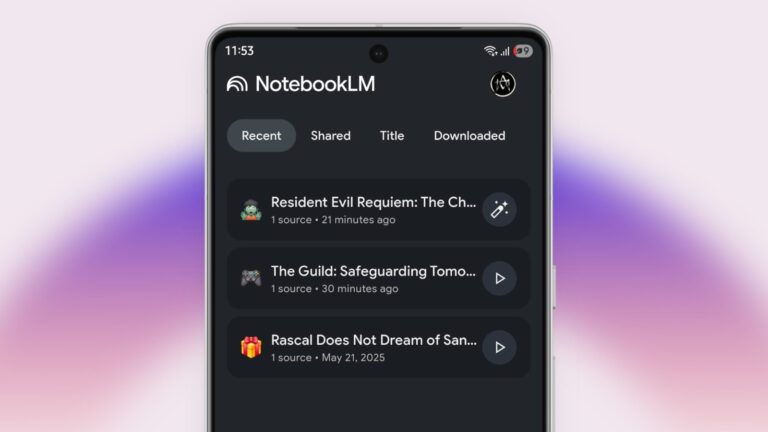One minute you’re checking emails or scrolling through social media. The next, your money’s gone, your data’s leaked and you’re left wondering how did this even happen?

It doesn’t always take some complicated hacker attack. Sometimes, it’s just a convincing message, a fake job offer or a link you shouldn’t have clicked. And that’s what makes online scams so dangerous, they don’t feel like scams until it’s too late.
Cybercriminals have become smarter, sneakier and faster. But so can we. Here’s a breakdown of 8 common scams doing the rounds right now, how they trap people and how you can avoid being next.
Phishing scams
You get an email from what looks like your bank: “Suspicious login detected. Click here to secure your account.” You panic. You click. And just like that, you’ve entered your credentials into a fake site.
Phishing now goes beyond email, it’s happening via text, calls and even DMs. The biggest red flags are the messages or calls that create urgency, something like “act now or lose access.”
Verification scams
You’re browsing a website, and it asks you to prove you’re not a robot. After all this time it has started to feel normal to check the boxes with traffic lights to prove that you are not a robot, right?
You click the checkbox, then suddenly a message pops up: “Please press Windows + R and paste the following to verify.” But running that code can silently install malware on your system. So instead of being “verified,” you’ve just invited a virus in. If anything feels off, it’s best to close the page and walk away immediately.
Lesson learned the hard way: Never run commands on your computer from random websites.
Impersonation scams
Someone calls saying they’re from your company’s IT team or the “Income Tax Department” and that your account is at risk. They sound official, polite and a bit urgent.
A relative of mine once got a call from “SBI support” asking for his OTP to verify an issue. He gave it and received 3 text messages back to back about money being debited from his account, losing around ₹50,000!
Remember, no legit company or government agency will ask for OTPs, passwords or crypto payments ever through calls or texts.
Job offer scams
Imagine getting a message on WhatsApp: “We found your profile perfect for a work-from-home job. ₹5,000 per day guaranteed!” Tempting, right? But does a dream job come this easy?
Then they ask you to pay a registration fee or send your Aadhaar details. You pay the registration fee and never hear back from them.
Point to note: Real recruiters don’t message on Telegram or WhatsApp and don’t ask for money upfront.
Holiday scams
You ordered 5 packages online, so when you get a message saying “your delivery is delayed, click to reschedule,” you click. But the link is fake, and now you’re on a phishing site.
Especially around Christmas, people tend to fall for a “limited-time gift card offer” scam on Instagram. So, watch out for fake deals, fake delivery updates and “win a free iPhone” texts.
Donation scams
After every natural calamity like flood, wildfire or earthquake donation links pop up on social media. While some are real, most of them are fake.
Scammers use names like “Relief India Fund” and ask for GPay or gift card donations. The best way to spot these scams is to look for spelling errors, fake domains or urgent, emotional language.
Romance scams
You meet someone on a dating app who’s charming, caring and always available. A few weeks in, they need money for a medical emergency. You send it and they disappear.
Romance scams aren’t just heartbreaking, they’re financially devastating. AI tools now help scammers create deepfake videos and voice calls.
Clue: Requests for money, emotional manipulation, and pressure to keep the relationship secret.
Fake police scams/Criminal arrest calls
This one’s terrifying because it plays on fear. Scammers call pretending to be senior police officers, claiming you’re linked to a drug case or serious crime. One common version is where they say a package in your name was caught with illegal substances and unless you pay a fine or “settlement,” you’ll be arrested.
In another real incident, my grandmother was told her son had been arrested in a criminal case and had to pay ₹1 lakh to “get him out of jail”, while in reality he was at his office. They accuse the person of charges as serious as a rape and even murder.
These scams are cold, calculated and usually aimed at older people who may panic and comply. If you or a loved one ever get a call like this, pause, verify and never transfer money out of fear. Real law enforcement doesn’t work this way.
How to stay safe from online scams
Be skeptical of unsolicited messages: Whether it’s a job offer, a bank alert, or a call from “the police,” don’t take things at face value. Pause and verify first.
Limit the personal info you share online: Avoid oversharing on social media or in response to random emails or messages. Scammers piece together small details to build convincing traps.
Don’t respond to every ping: You’re not obligated to answer unknown calls or reply to every email or message.
Use reliable antivirus protection: Keep your devices safe with up-to-date antivirus software, whether you’re on Windows, Mac or Android.
Stay informed and alert: Scam tactics evolve fast. Read up on trending scams, new techniques, and warning signs so you can spot trouble before it hits.
Talk about it with your family: Share this knowledge, especially with older parents or grandparents and young teens. They’re often the most targeted and the least aware.
Never rush into payments: Legit authorities, companies, or recruiters won’t ask for urgent payments via gift cards, crypto or shady links. If they do, it’s likely a scam.



















